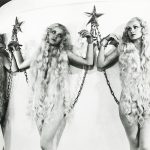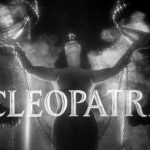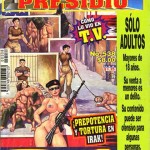The Mask of Fu Manchu is a 1932 adventure thriller.
Many other people have written about the racial and gender politics of this film. Suffice it to say, they’re awful. This was at the peak of “yellow peril” racism in America, portraying a world on the brink of a cataclysmic war between West and East. Asians are portrayed as both vicious and weak, needing a leader like the Western-educated Fu Manchu to lead them.
This was also before the Hays code was put into effect in 1934, and it displays a degree of sex and violence that is still surprising today.
The two villains are both portrayed by white people in yellowface: Boris Karloff as Doctor Fu Manchu and Myrna Loy as his daughter Fa Lo See (“fallacy”?). Before Loy was the ideal American wife Nora Charles in the Thin Man movies, she played “exotic” or “ethnic” women in brown, yellow or black face.
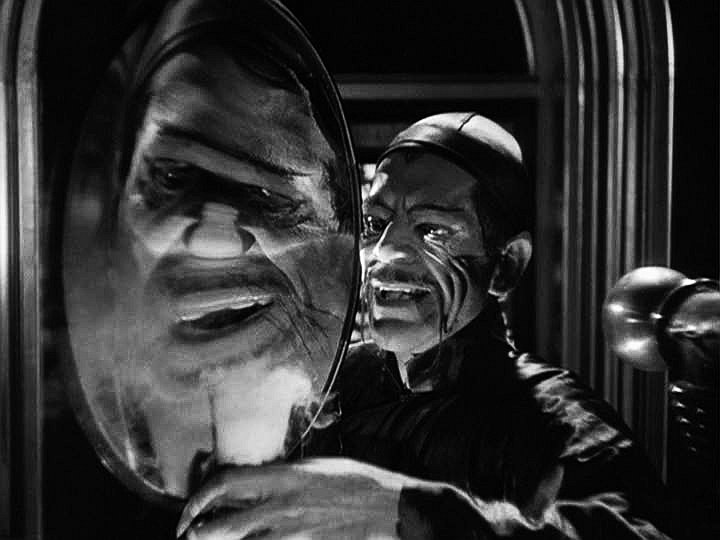
The MacGuffin of this film is the golden mask and sword of Genghis Khan. (Despite the title, there’s more emphasis on the sword than the mask.) Sir Nayland Smith fears that if the notorious Dr. Fu Manchu gets them, “He’ll declare himself Genghis Khan come to life again, and he’ll lead hundreds of millions of men to sweep the world.”
Much of the action in this film occurs in Fu Manchu’s lair, a place that combines modern electrical and chemical apparatus with a mish-mash of Asian motifs. Often there are buff black men standing around in loincloths, giving the proceedings an undertone of homoeroticism.
Fu Manchu employs many elaborate methods of interrogation and execution: leaving a man tied beneath a giant ringing bell, tying a man to a lever being slowly lowered into a pit of crocodiles, trapping a man between two spiked walls that slowly close in. At least these elaborate deathtraps are explained by him saying that just killing his foe would be the easy way out.
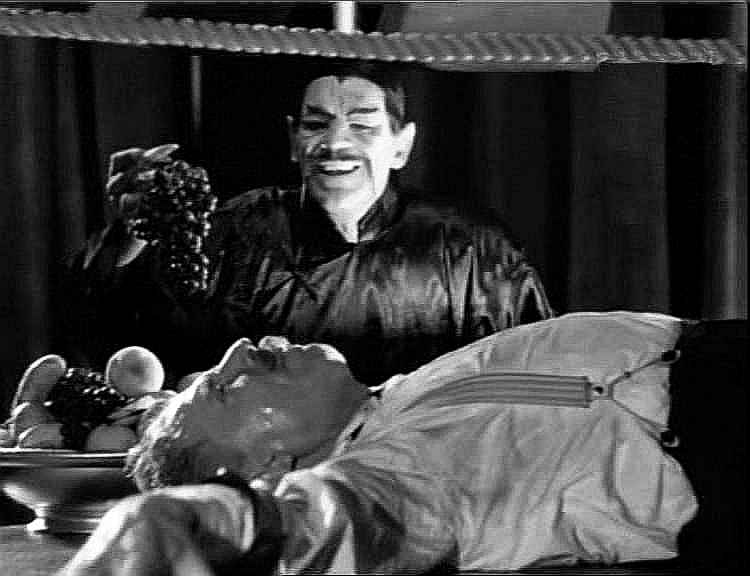
The criminal mastermind is a genial sadist, and sometimes caresses his helpless victims tenderly. As we’ve noticed before, “the Orient” is seen as a place of deviant sexuality, and homoeroticism is just part of that.
Things get even weirder with Sheila (Karen Morley), the daughter of one of the explorers, and her fiancee, a hunk of American cheese named Terry (Charles Starret). Their bond as future husband and wife is tested by Fu Manchu’s deviance.
Sheila is not what you’d call a “strong female character”. The rest of the male characters are frankly paternalistic with Sheila, sometimes carrying her around or drugging her so she can sleep. It’s also a given that by having a beautiful blonde girl in Asia that she’s in great peril, as white women are apparently the most prized. “You suppose for a moment Fu Manchu doesn’t know we have a beautiful white girl here with us?
Later, Fu Manchu has Sheila brought in on a table, and says to his assembled “hordes”: “Would you all have maidens like this for your wives? Then conquer and breed! Kill the white man and take his women!”
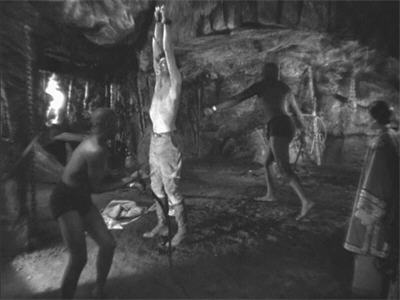
But it’s Terry, epitomizing white American manhood, who is the real focus. He gets captured midway through the film, and the black servants rip off his shirt and drag him off to be strung up and whipped on the orders of Fa Lo See, who has been making eyes at him. Though this scene is shot with the whipping mostly off-camera, there are a few shots of the whips hitting (presumably faked). This is one of the most racially charged moments, with a white man being bound and whipped by two black man, on orders from an Asian (sort of) woman, who shouts, “Faster! Faster!”.
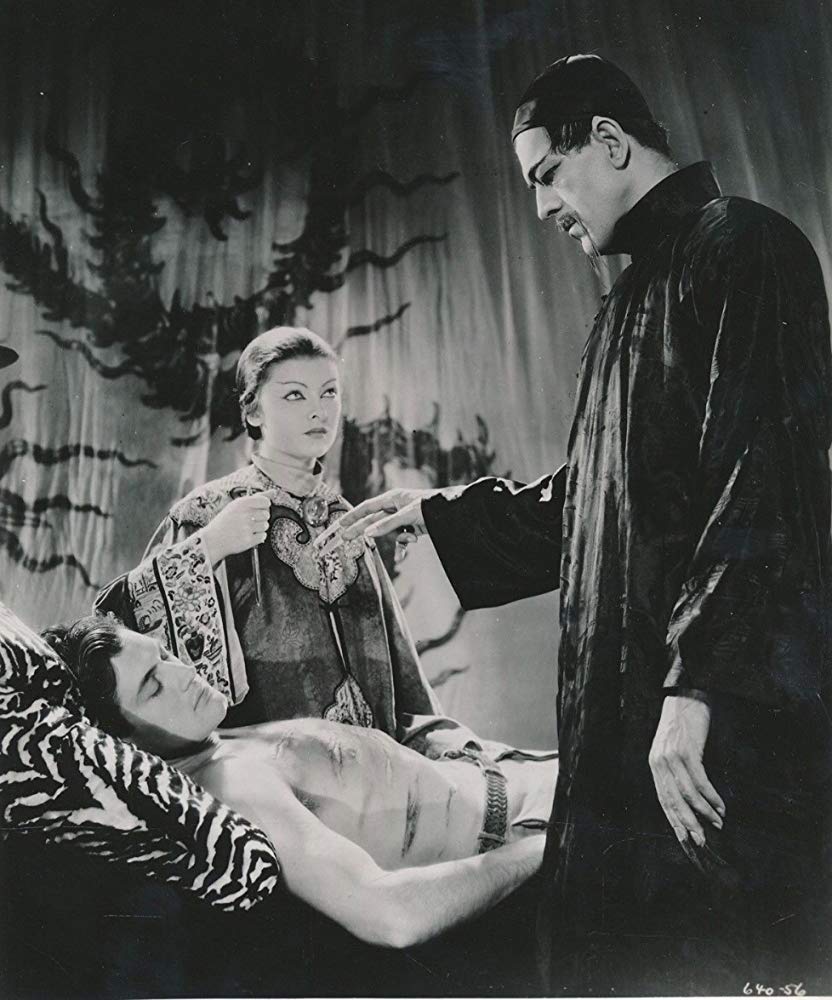
After the whipping, Terry appears to pass out. Fa Lo See has him put in a bed, still barechested, and leans over him, lips close to lips. Just as a blonde white beauty like Sheila is desired all over the world, white hunks like Terry seem to have the same effect on Asian women. Again, this is flirting with the taboos of miscegenation and gender inversion, a white man as the obedient boytoy of an Asian woman.
The possibility of her kissing him is avoided by Fu Manchu’s arrival.
Fa Lo See: “He is not entirely unhandsome, is he, my father?”
Fu Manchu: “For a white man, no.”
While Fu Manchu is probably peeved that his only daughter is succumbing to the bland charms of a white man, given the pleasure Fu Manchu takes in tormenting his victims, perhaps he wanted Terry for himself?
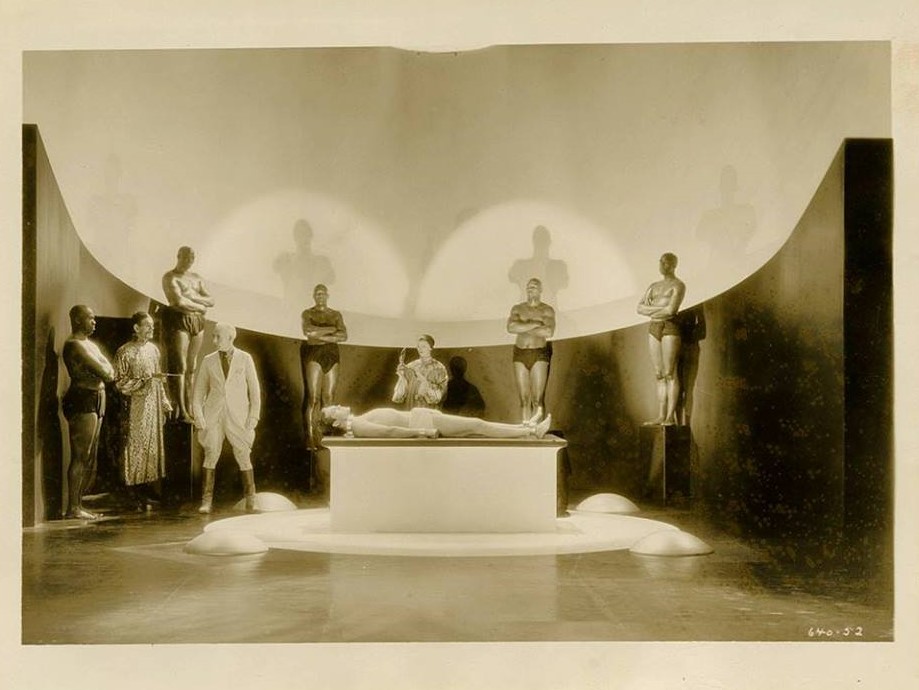
The next major scene features Terry is unconscious, naked but for a loincloth and manacled to a table. Fa Lo See, smoking opium (?), stands over him, along with five oiled, nearly-naked, black men.
Fu Manchu explains with sadistic delight that he will inject a drop of serum into Terry’s blood. “The injection of the serum will make his brain mine. In other words, he becomes a reflection of my will. He will do as I command, exactly as though I were doing it. So much better than hypnotism.” Even as Fu Manchu talks about wiping the white race from the Earth, he strokes Terry’s nearly naked body.
The procedure combines the trappings of modern surgery with extracting bodily fluids from snakes and spiders. Terry gets only a light dose so he will return to himself when it’s time to hand him over to Fa Lo See.
Under the control of the serum, Terry lures Sheila with the sword and mask to Fu Manchu’s lair. Only then does the power of Sheila and Terry’s love overpower the drug, but it’s too late.
After that it’s hair’s-breadth escapes and rescues, and the apparent death of Fu Manchu from his own lightning machine. Finally, the heroes escape, and the sword is thrown into the ocean.
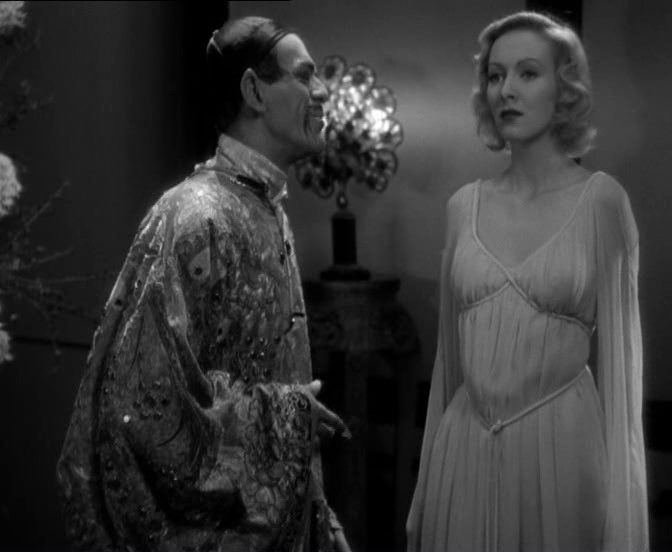
The Mask of Fu Manchu exploits many cultural anxieties of the 1930s: the possibility of Asian nations becoming global powers, the rising status of Asian and black people in America, women rising in power, the perceived weakness of men in the aftermath of the Great War and the Great Depression, the transformative powers of modern surgery. These are expressed through the bodily experiences of the characters. But these scenes also provide the thrill of deviance, vicariously experiencing the sadism and masochism of these characters. At the end of the narrative, the proper hierarchies of race and gender are restored.
For some viewers, that might be the end of it, but others would retain those moments.
